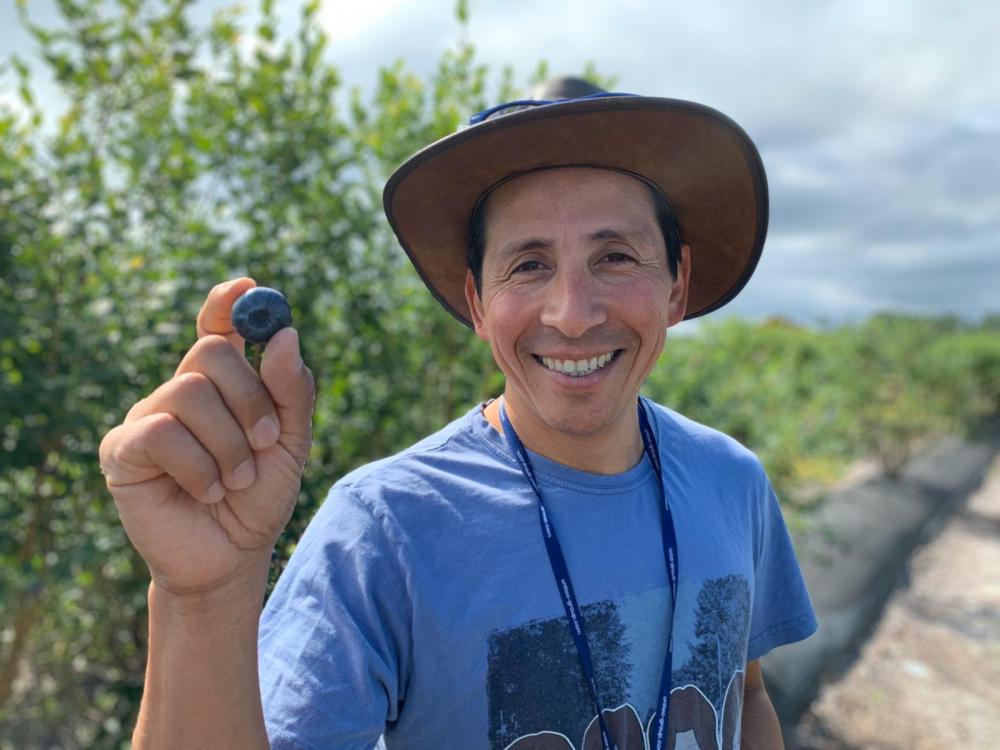2 min Read
While Patricio R. Munoz specializes in blueberries, when asked what type of plant breeder he is, he simply describes himself as one that "uses all the tools, methods and techniques available to help breed crops faster and more efficiently."
Munoz' plant breeding career spans 17 years, starting as an assistant working with forestry trees crops like pine trees, and transitioning to his current role as an associate professor blueberry breeding within the University of Florida's Horticultural Science Department.
What sparked his interest in breeding? Munoz says he found it "fascinating what we can influence how much food could exist in the future as well as how the food would look and taste." These are especially important characteristics as we look to address growing challenges in global hunger and food security.
Munoz says he and his team work to address a variety of characteristics that benefit farmers and ultimately, consumers - from more productive and higher quality crops, to more resilient plant varieties that better withstand threats from devastating pests and diseases. But specifically, within his lab, Munoz is currently focused on understanding the components of blueberry flavor, using sensory, biochemistry and molecular information.
[quotation align="right" source="Patricio R. Munoz" attribution="University of Florida"]
Most plant breeders love their job as we get to be innovating all the time. We improve plants, people, tools and methods.
[/quotation]
"We work to develop aromatic blueberries that are more appealing to consumers." And it makes sense that when fruit tastes, looks and smells more appealing, people will consume more of it, and in turn, reap the accompanying health benefits. For blueberries, those health benefits are compelling. According to WebMD, blueberries are one of the best natural sources of antioxidants; in fact "eating blueberries regularly for just two weeks can help reduce damage to your cells by as much as 20%." They're also a good source of dietary fiber and essential minerals and vitamins, including C and K, all at only 80 calories per serving.
Over the course of his career, Munoz has helped develop 10 new blueberry cultivars. Topping his highlight list is the Colossus cultivar, named for its jumbo fruit size. Other cultivars include the Sentinel and Albus, which he describes as "high yield and good eating quality...giving both growers and consumers something to be excited about."
Munoz says the best part of his job is the opportunity to train and operate in multiple disciplines. This involves lab, computers, greenhouses, and field work. "Most plant breeders love their job as we get to be innovating all the time," he says. "We improve plants, people, tools and methods."
What's he most excited about for the future? Blueberries with exotic flavors and aromas (we personally can't wait)! The biggest hurdle standing in the way is time. Munoz says breeding is, unfortunately, still a relatively slow process. However, with growing genomic knowledge and the emergence of new and innovative breeding methods, maybe the future isn't too far off...one can only hope!


